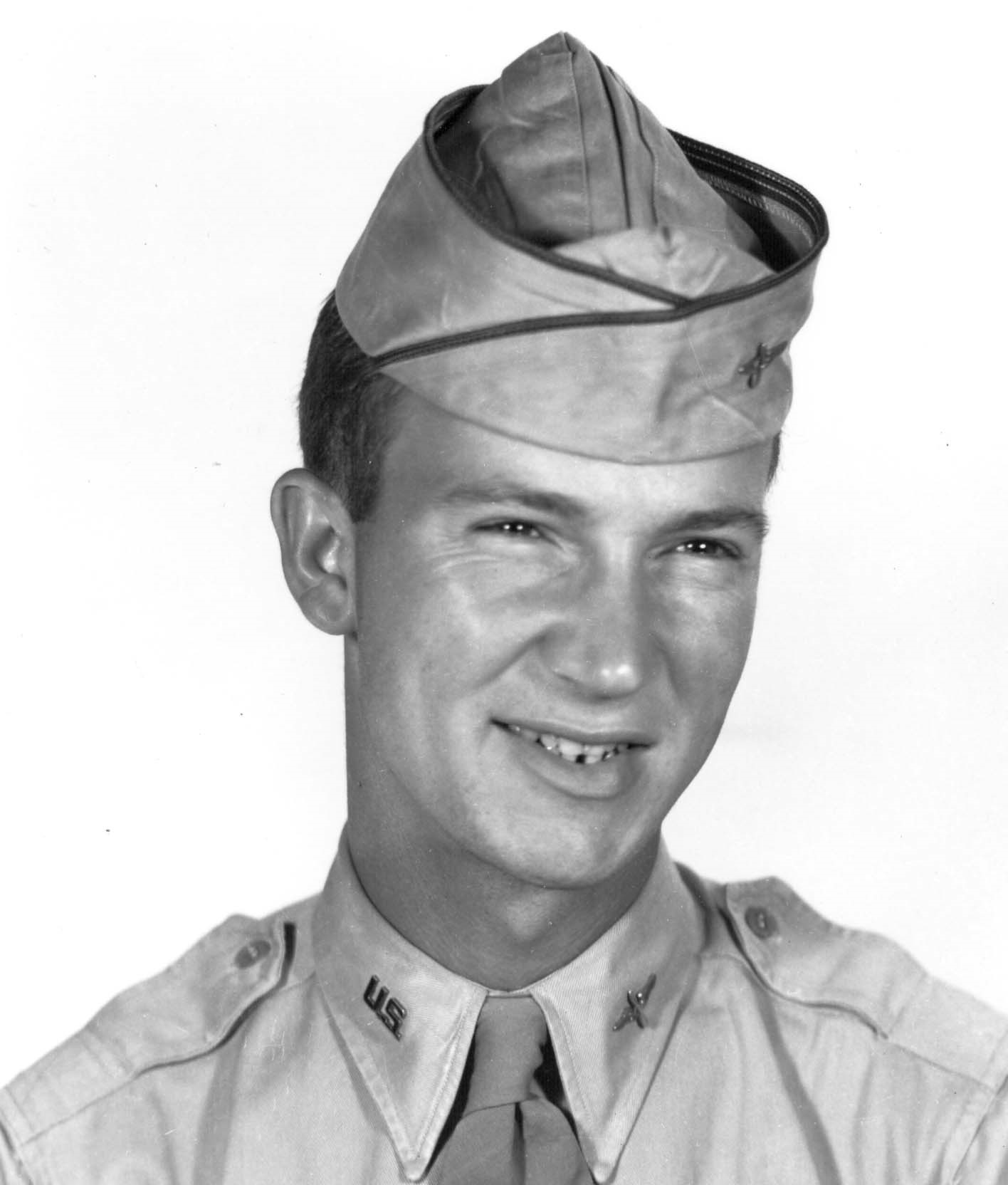Robert Edward Femoyer was born on October 31, 1921, in Huntington, West Virginia. He was the son of Edward P. Femoyer and Mary Elizabeth Femoyer.
Robert attended Virginia Tech before answering the call to duty. He joined the Enlisted Reserve Corps on November 11, 1942. He was called to active duty in February 1942 and took basic training at Miami Beach, Fla. He joined the Army Air Corps in February 1943 and became an aviation cadet in July 1943 but did not get his pilot's wings. In 1944, he graduated from the Army Air Forces Flexible Gunnery School at Fort Myers, Fla., and the AAF Navigation School at Selman Field, La. He went to the European Theater in September 1944 as a navigator assigned to the 447th Bomb Group's 711th Squadron.
Second Lieutenant Femoyer earned the Medal of Honor as a B-17 navigator on November 2, 1944, during a mission over Germany. Despite being severely wounded, he remained at his station for two-and-half hours so that he could guide his bomber back to England. Only on reaching the English Channel did he permit injection of a painkiller. Lieutenant Femoyer died shortly after being removed from the aircraft.
The state of Florida historical resources lists him as one of their own war heroes. His college, Virginia Tech, named a building in his honor. Numerous air force bases have a street named in his honor.
His Medal of Honor citation reads:
For conspicuous gallantry and intrepidity at the risk of his life above and beyond the call of duty near Merseburg, Germany, on Nov. 2, 1944. While on a mission, the bomber, of which 2d Lt. Femoyer was the navigator, was struck by three enemy antiaircraft shells. The plane suffered serious damage and 2d Lt. Femoyer was severely wounded in the side and back by shell fragments which penetrated his body. In spite of extreme pain and great loss of blood he refused an offered injection of morphine. He was determined to keep his mental faculties clear in order that he might direct his plane out of danger and so save his comrades. Not being able to arise from the floor, he asked to be propped up in order to enable him to see his charts and instruments. He successfully directed the navigation of his lone bomber for 2 1/2 hours so well it avoided enemy flak and returned to the field without further damage. Only when the plane had arrived in the safe area over the English Channel did he feel that he had accomplished his objective; then, and only then, he permitted an injection of a sedative. He died shortly after being removed from the plane. The heroism and self-sacrifice of 2d Lt. Femoyer are in keeping with the highest traditions of the 447th Bomb Group and the U.S. Army Air Corps.
Source of information: www.findagrave.com, www.447bg.com

